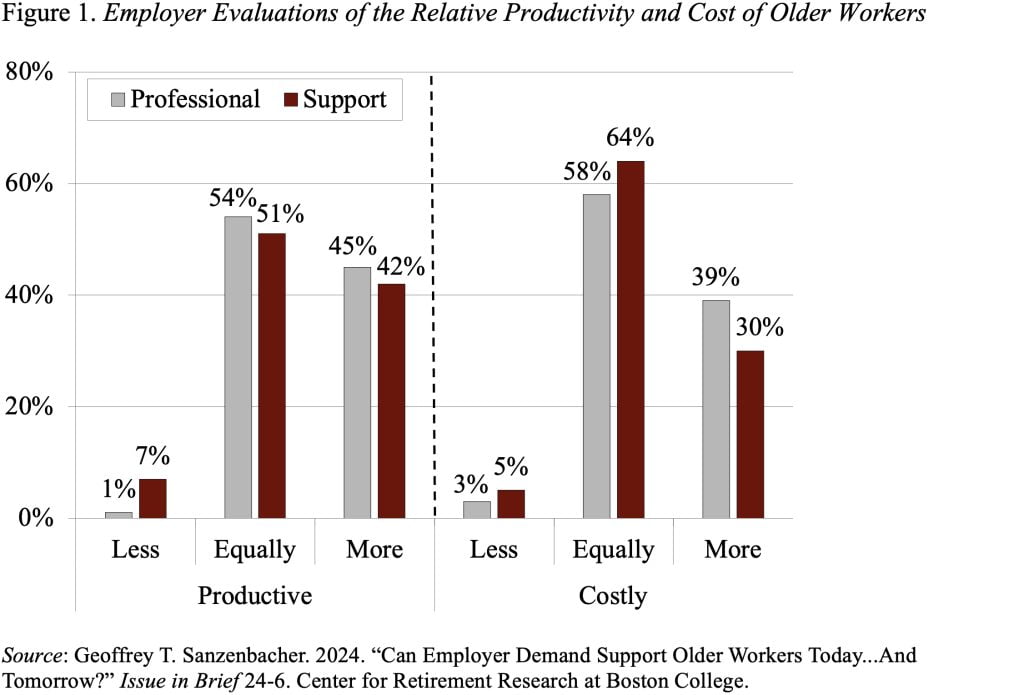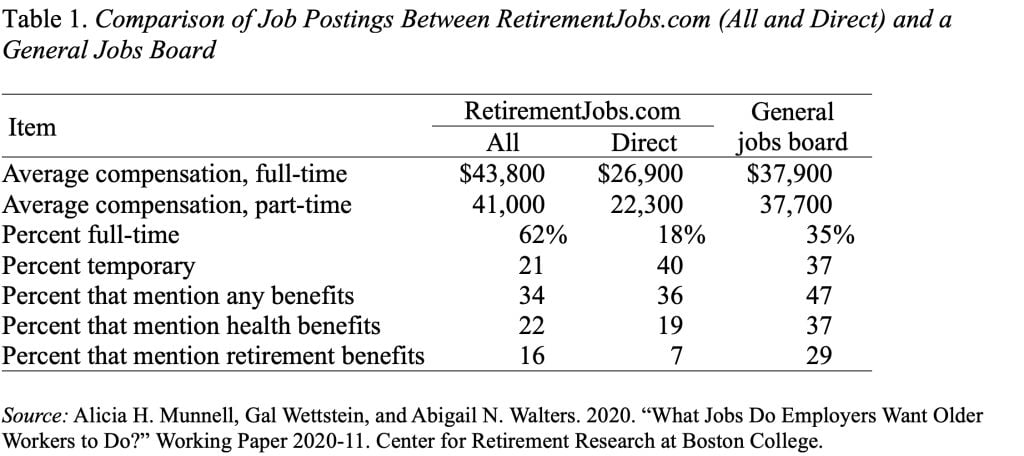
Are Employers Willing to Hire Older Workers?
Alicia H. Munnell is a columnist for MarketWatch and senior advisor of the Center for Retirement Research at Boston College.
A series of studies suggests tempered optimism at best.
Larry Fink, in his annual letter to Blackrock investors, once again raised the question about the appropriate retirement age. Certainly, with life expectancy and health improving – at least for a portion of the population – longer careers could be one way to ensure an adequate retirement.
But workers are just one side of the market. The other side is employers. Are employers willing to hire and retain them? My colleague Geoff Sanzenbacher just completed a capstone brief summarizing several recent studies that we have done on the demand for older workers.
Are Today’s Older Workers Good for Business? For this analysis, the researchers linked three datasets that allowed them to track businesses over time and to estimate the effect of exchanging younger workers for older ones on productivity (revenue/ employees) and on profitability (revenue/payroll). This estimation was done in two ways: 1) across many industries in a manner that yielded correlations; and 2) in manufacturing only, exploiting special features of this industry to obtain causal results.
On the productivity side, older workers do not seem to be less productive. On profitability, the picture is more lopsided, with estimates generally indicating that a larger share of older workers is associated with lower profit. But, the more sophisticated estimation method – which sought to obtain causal results – found no evidence of lower profitability in manufacturing for firms with older workforces.
How Do Today’s Employers Perceive Older Workers? Here we have two studies.
What Do Today’s Employers Say about Older Workers? In 2019 – before the pandemic – the Center commissioned a telephone survey of employers on their views of workers’ productivity and costs.
Employers’ views are roughly consistent with the objective measures of workers’ value shown above. The majority say that older workers are equally productive as those under 55, with a large fraction seeing them as more productive see Figure 1). On the cost side, the majority of employers see older workers as equally costly, although a sizable minority see them as more costly than younger ones.

Do Today’s Employers Seek Out Older Workers? Here, the researchers turned to RetirementJobs.com, the only major job site targeted to individuals ages 50 and over. The site contains both “direct” listings aimed explicitly at older workers and “indirect” postings from employers willing to hire older, as well as younger, workers.
When focusing on all jobs posted on RetirementJobs.com, Table 1 shows that the salaries for both the part- and full-time jobs on RetirementJobs.com are significantly higher than those on the general jobs board and are more likely to be full-time positions. On the other hand, jobs most directly aimed for older workers pay less.

Will Demand for Older Workers Hold up Tomorrow?
This exercise involved two different approaches. The first one was simply to look at the jobs older workers are doing today and compare them to projections for 2030. This analysis answers the question: are older workers currently doing jobs that are expected to be plentiful at the end of the decade? The first approach yields a discouraging result – a higher share of older workers in an occupation today is associated with fewer jobs in 2030.
The second approach addressed a slightly different question: are older workers able to do the jobs that will be plentiful in 2030, even if they are not doing them now? Here the finding is somewhat encouraging: those jobs older workers can do are apparently not going away, even if the ones they are currently doing appear to be becoming less common.
Summing Up
Older workers may be just as good as younger workers for a firm’s bottom line. But employer perceptions appear mixed – they say older workers are at least as productive but relatively expensive. In terms of the future, while the jobs older workers do today may be less prevalent, other jobs that older workers have the capacity to do should be plentiful. Geoff concludes that “room for tempered optimism exists.” Quite tempered, I would say.







